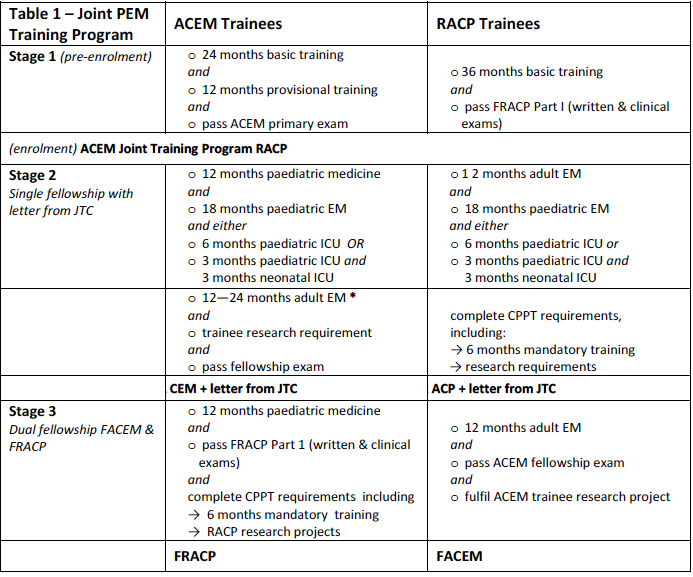Paediatric Emergency Medicine
Paediatric emergency Medicine is a medical subspecialty which falls under both the paediatric and emergency colleges. Specialists in Paediatric emergency (PEMs) are experts in assessing, investigating and managing ill and injured children who present to hospital via the emergency department. They are involved in the full spectrum of presentations from minor illnesses and injuries requiring minimal management and discharge to the resuscitation and stabilization of seriously ill children. Paediatric emergency physicians may work in specialist paediatric emergency units or in mixed emergency departments alongside general emergency specialists. They also are involved in prehospital settings both in the transfer of children to higher levels of care to prehospital management of illness and injury in children.
Advantages of starting a career at TPCH
Registrars
- Dedicated training days for Registrars
- Access to high fidelity simulation including Paediatric simulation
- Primary and Fellowship exam preparation programs including a PEM fellowship programme
- Access to 6 month rotation in Paediatric Emergency and up to 24 months accredited adult ED time
- Access to non-ED rotations, including PICU, Anaesthetics, General Paediatrics and Medical Education
- Broad ED case-mix, including high acuity adult & paediatric patients
Junior & Senior House Officers
- Full [10 week] rotations to Paeds ED for RMOs
- SHOs can apply for a six (6) month Paeds ED only rotation
- JMOs including SHOs who are non trainees have access to a half day training day as the roster allows as well as lots of on the floor training opportunities
Training Overview
Entry requirements to Training Program
Paediatric Emergency Medicine is a subspecialty of both the Paediatric (RACP) and Emergency (ACEM) streams.
- Trainees require general registration in Australia or New Zealand from 1 January 2014
- Registration as a trainee with Australasian College for Emergency Medicine (ACEM) or Royal Australasian College of Physicians
- Need to be an advanced trainee in either college prior to applying for enrolment in the joint trainee committee for Paediatric emergency medicine
Overview of Training Program (taken as an exerpt from the ACEM trainee handbook)
Enrolment in Joint Training Program
Enrolment in the joint training program in paediatric emergency medicine is limited to those who:
(a) are registered as a trainee with either ACEM or RACP (the ‘parent College’) for the purpose of undertaking their initial specialist training (concurrent registration with both Colleges is not required), and (b) are an advanced trainee with their parent College.
Eligible candidates should submit their application for enrolment in the joint training program to their parent College. The timing of enrolment is at the discretion of the trainee, but early enrolment is encouraged to help ensure that appropriate training is pursued.
Table 1 below illustrates the elements which must be undertaken in order to complete dual fellowship in optimum time. It not only describes the training required for the purposes of obtaining Joint Training Committee certification but also how the requirements of the joint training program and the requirements of the standard training program of the ‘parent’ College can be harmonised.

Stage 1
This stage is undertaken through the ’parent’ College prior to enrolment in the joint training program.
Stage 2
This stage is undertaken through the ‘parent’ College. It is not complete until fellowship of the ‘parent’ College has been awarded and the Letter of Completion has issued by the Joint Training Committee.
Stage 3
Prior to commencement of this stage, registration as a trainee with the other College is required.
Minimum Requirements
Unless otherwise stated, all PEM program training must be undertaken at advanced training level. PEM training time must include a minimum of:
Paediatric tertiary emergency departments and large mixed departments must be specifically accredited for JTC PEM training. For up-to-date details and accreditation guidelines, please see the ACEM & FRACP websites.
What rotations are recommended prior to applying for training
Broad exposure to multiple specialties is recommended especially paediatric subspecialties and critical care terms, ED etc.
How to improve your chances of selection
No specific courses or research required
- 24 months approved adult ED training *
- 18 months of approved paediatric ED training
- 12 months of approved paediatric medicine and
- 6 months of approved paediatric ICU (this may be split as 3 months paediatric ICU and 3 months neonatal ICU).
* Of the required 24 months adult ED training, up to 12 months may be undertaken during provisional training. This means that the amount of adult ED training required during advanced training will vary between 12 and 24 months depending on the amount undertaken during provisional training.
Frequently Asked Questions
Contact us
Medical Education Unit
Email: TPCH-Medical-Education@health.qld.gov.au
Phone: (07) 3139 4221
Educational Supervisors:
Dr Neil Grant, Director of Emergency Medicine Training
Dr Laura Wee, Director of Emergency Medicine Training
Editor: Dr Melanie Rule
